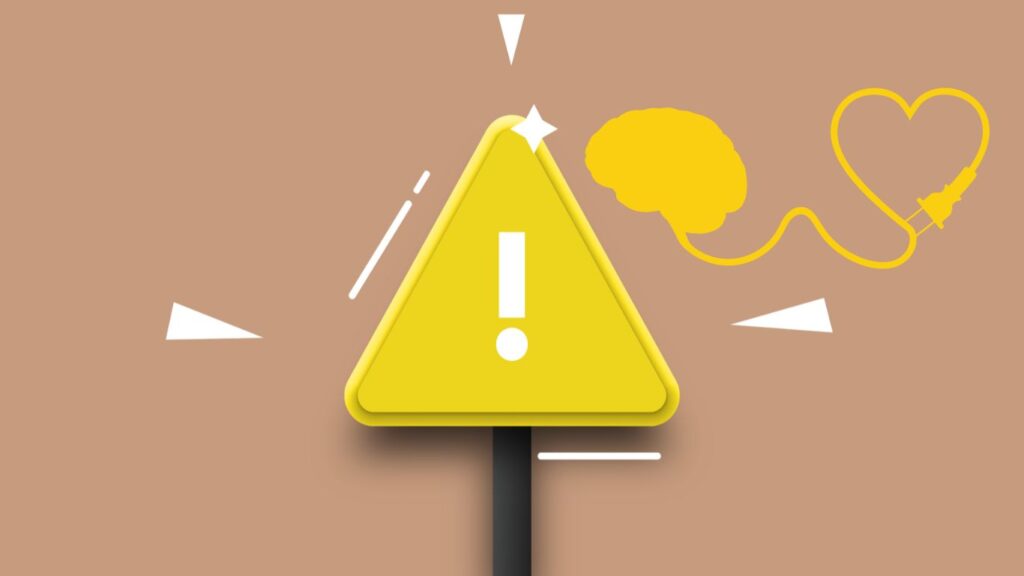In today’s fast-paced world, mental health awareness has emerged as a crucial aspect of overall well-being, transcending mere physical health to encompass emotional, psychological, and social stability. Despite its significance, mental health often remains shrouded in misunderstanding and stigma, leading many to suffer in silence without seeking the help they need. This blog aims to bridge that gap by shedding light on the vital importance of mental health awareness. By educating readers on the early warning signs of mental health issues, we empower individuals to recognize when they or someone they know may need support. Timely intervention can be life-changing, offering a pathway to recovery before challenges escalate into crises.
Recognizing the Early Warning Signs of Mental Health Issues
Understanding Mental Health
Mental health is a critical component of our overall well-being, encompassing our emotional, psychological, and social health. It influences how we think, feel, and behave, playing a crucial role in our ability to handle stress, make decisions, and maintain relationships. Despite its importance, several misconceptions cloud public understanding of mental health. Common myths include the belief that mental health problems are a sign of personal weakness, that they can simply be ‘snapped out of,’ or that they are not as serious as physical health issues.
These misconceptions hinder people from seeking help and receiving the support they need. Recognizing mental health as equally important as physical health is essential for fostering a holistic approach to well-being. By debunking these myths, we aim to create a more informed and compassionate society where mental health is treated with the care and respect it deserves.
General Warning Signs of Mental Health Issues
Mental health conditions, despite their varied manifestations, often exhibit universal warning signs that can signal the need for attention or intervention. Recognizing these signs is crucial for early detection and support. Among the most common indicators are significant changes in mood, including persistent sadness, irritability, or fluctuations that seem disproportionate to circumstances. These mood alterations can affect one’s daily functioning and interpersonal relationships.
Alterations in sleep patterns also serve as a red flag, whether it’s insomnia, sleeping too much, or experiencing disturbed sleep. Sleep is fundamental to mental health, and deviations from normal patterns can exacerbate or indicate underlying issues. Similarly, changes in eating habits, such as increased or decreased appetite, sudden weight gain or loss, can reflect emotional distress or psychological conditions.
Social withdrawal is another significant sign, often overlooked. Withdrawing from social interactions, activities once enjoyed, or isolating oneself can be a response to internal struggles, indicating a need for help.
Noticing these signs, either in oneself or others, is a critical first step toward seeking help. It’s essential to understand that these signs are not merely quirks or passing phases but potential indicators of deeper mental health challenges. Acknowledging them opens the door to conversations about mental health, reducing stigma, and encouraging individuals to seek professional advice and support. Early intervention can significantly improve outcomes, making awareness and recognition of these signs pivotal in promoting mental well-being.

Specific Signs for Common Mental Health Disorders
Depression:
- Persistent Sadness: A deep, ongoing sadness that doesn’t improve with time or through usual comfort measures.
- Loss of Interest: A noticeable disinterest in activities once found enjoyable, including hobbies, social events, and even everyday tasks.
- Fatigue: Feeling excessively tired most of the time, regardless of activity level or rest.
- Feelings of Worthlessness: Harsh criticism of oneself, feelings of guilt, and a diminished sense of self-esteem.
- Changes in Sleep Patterns: Difficulty sleeping or oversleeping are common signs.
- Concentration Issues: Struggles with focusing, making decisions, or remembering things.
Anxiety Disorders:
- Excessive Worry: Persistent, excessive worrying about various aspects of life, often uncontrollable and disproportionate to the actual situation.
- Physical Symptoms: Includes trembling, sweating, rapid heartbeat, and dizziness.
- Restlessness: A feeling of being on edge or unable to relax.
- Sleep Disturbances: Problems falling or staying asleep, often due to ongoing worries.
- Avoidance of Certain Situations: Steering clear of situations that trigger anxiety.
Bipolar Disorder:
- Mood Swings: Extreme highs (mania or hypomania) and lows (depression), with shifts that can be sudden and severe.
- Increased Activity or Energy: During manic phases, an increase in activity or energy levels is common.
- Risky Behavior: Engaging in impulsive or risky behavior during a manic episode.
- Depressive Episodes: Periods of intense sadness, hopelessness, and the symptoms similar to those of depression.
Eating Disorders:
- Unhealthy Eating Habits: This can range from severe restriction of food intake to binge eating.
- Preoccupation with Weight and Body Shape: An intense fear of gaining weight or an obsession with losing weight.
- Distorted Body Image: A significant dissatisfaction with one’s body size, shape, or weight.
- Physical Symptoms: Such as significant weight loss or gain, dental problems, and for women, irregular or absent menstrual periods.
Recognizing these specific signs can be crucial for early identification and intervention in major mental health disorders, potentially leading to more effective treatment and better outcomes.

Impact of Ignoring Warning Signs
Ignoring the warning signs of mental health issues can have profound and lasting consequences on an individual’s personal and professional life. On a personal level, untreated mental health conditions can lead to deteriorating relationships, social isolation, and diminished quality of life. Individuals may experience increased susceptibility to substance abuse as a coping mechanism, further exacerbating their condition. Professionally, the impact can be equally severe, with decreased productivity, absenteeism, and even job loss not uncommon.
Mental health issues can impair cognitive functions such as concentration, decision-making, and memory, affecting job performance and career progression. Moreover, the stigma associated with mental health can discourage individuals from seeking the help they need, leading to a vicious cycle of worsening symptoms and increased isolation. Recognizing and addressing mental health warning signs early is crucial to prevent these adverse outcomes and support a healthier, more fulfilling life.
How to Help Yourself or Someone Else
When recognizing warning signs of mental health issues in oneself or others, taking proactive steps is crucial for addressing these concerns effectively. Open communication serves as the foundation for support and understanding. It involves expressing concerns in a compassionate, non-judgmental manner, encouraging an environment where feelings and struggles can be shared without fear of stigma. Seeking professional help is a critical step; mental health professionals can offer diagnosis, guidance, and treatment options tailored to the individual’s needs. This may include therapy, medication, or a combination of approaches.
Incorporating self-help strategies into daily routines can also be beneficial. Activities such as regular exercise, maintaining a healthy diet, practicing mindfulness or meditation, and ensuring adequate sleep can significantly impact mental well-being. It’s important to emphasize the role of empathy, non-judgment, and support in this process. Demonstrating understanding and patience, offering a listening ear, and providing reassurance can make a substantial difference in someone’s journey toward recovery. Remember, addressing mental health issues is a sign of strength, not weakness, and taking these steps is pivotal in navigating the path to better mental health.
Seeking Professional Help: When and How
Professional intervention is critical in effectively managing mental health issues, providing specialized care that addresses the unique needs of each individual. Identifying the right time to seek help is key; it’s often when symptoms persist, intensify, or begin to interfere with daily life, relationships, or work. Early intervention can lead to better outcomes, preventing conditions from worsening. Navigating the healthcare system to find appropriate support services requires research and persistence. Start with a primary care physician who can offer initial assessments and referrals.
Utilize online resources, insurance provider directories, or local mental health organizations to find therapists, psychiatrists, or support groups. It’s important to ensure that the services and professionals chosen are suited to your specific needs, preferences, and financial situation. Remember, seeking professional help is a proactive step towards recovery, and the right support can make a significant difference in the journey toward improved mental health.

Conclusion
In conclusion, recognizing the early warning signs of mental health issues is an essential step in fostering a culture of awareness and support. By understanding these signs, whether in ourselves or in others, we take a crucial step toward addressing mental health proactively. From changes in mood, sleep patterns, and social behavior to the specific symptoms associated with disorders like depression, anxiety, bipolar disorder, and eating disorders, awareness is key to early intervention and treatment.
We’ve discussed the importance of open communication, empathy, and seeking professional help, emphasizing that mental health should be approached with the same seriousness as physical health. It’s vital to remember that seeking help is a sign of strength, not weakness, and that early intervention can lead to better outcomes and a healthier, more fulfilling life. Let us all commit to breaking down the barriers of stigma and creating an environment where mental well-being is prioritized, and support is readily available for those in need.
Also read: Dopamine Fasting: Myth or Science?
